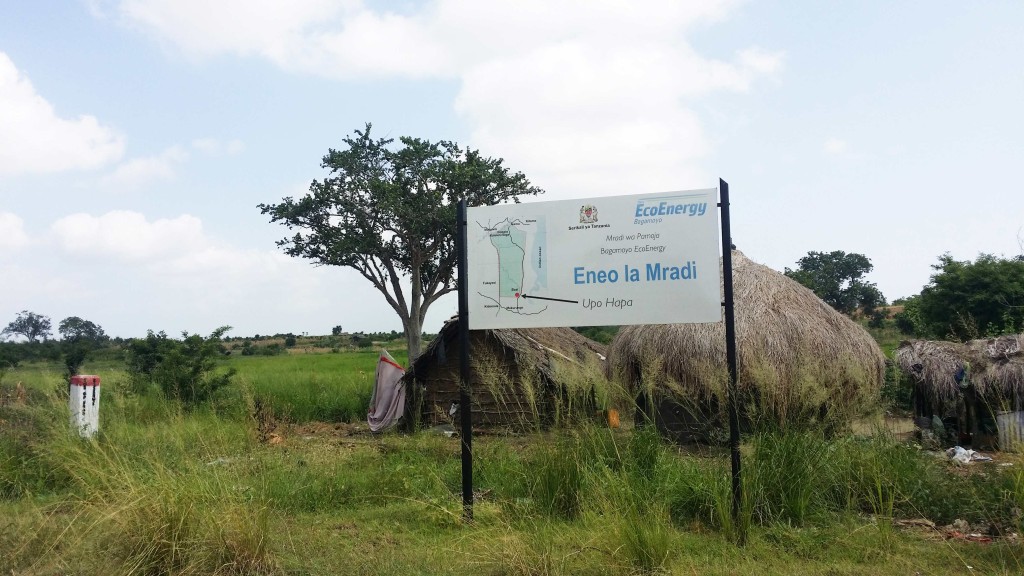
Written by Jill Tove Buseth, PhD Fellow, Noragric
The broad and somewhat blurry term ‘the green economy‘ has for the last three to four years emerged as a leading idea within environmental politics, and the green shift has become extremely popular among policy makers, politicians and the broader population in general. The green shift has also had a growing influence within development thinking. But there are several reasons to be wary of the belief that ‘green’ projects are the solution to the complex challenges of underdevelopment and climate change the world is experiencing today. Putting ‘green’ labels on various development projects has proved to overshadow other and more important challenges, and there is a tendency that such ‘green’ projects are not always adequately quality-assured due to the urge of quickly implementing environment and mitigation projects, as well as the rapid transfer of aid money.
Green economy has for a long time been a strategic area within aid and development work in the global South, and Norway is one of the countries that has channeled huge portions of its development aid to climate- and environment programs across the globe. Carbon offsetting and forest protection programs such as REDD+ are well-known initiatives meant to combine environment and climate measures, assurance of social justice and social development, as well as create economic growth, echoing the three main pillars within a green economy. However, several of these projects have been widely criticized for social injustice at the local level. This is familiar through discussions around sustainable development, which since the Brundtland Commission’s report in 1987, has stood solid in international environment and development work and thinking. But there is something new in the ideas surrounding the green economy which has attracted a much wider specter of actors, and made even the most neo-liberal business corporations warmly welcome the green shift.
One of the main reasons that the green economy has become so well-established in such a short time probably lies in the fact that the focus is no longer on sustainability, but on the economy. In this way is has been far easier to reach out to new arenas among others the business sector. By keeping the underlying goal of capital accumulation and economic growth, but in a manner that, to a greater extent, answers to climate policies and measures, it has been far easier for governments and private companies to accept a green shift.
Moreover, diffuse decisions and unclear politics make it easier to define for yourself what qualifies as ‘green’ and not. Consequently, almost all major companies have some sort of green focus today. We hear about preservation of natural resources in the mining industry, sustainable oil extraction, and a general transfer towards a greener profile amongst all manner of companies and businesses. The VW scandal last year is one example of a failed green measure, but there is a growing body of examples from among others the agricultural sector in several African countries, where the green shift has already come far in its implementation. Investment in agriculture is regarded as one of the main strategic areas for change in a green economy.
The fact that foreign actors are involved in African agriculture is nothing new, and not necessarily a problem. The problem is that great ideas on the transfer to a green economy do not, in many cases, represent the projects that are actually being implemented. The visionary ideas behind it are great, but in practice projects mostly turn out to become something very different. In Tanzania, the agricultural corridor SAGCOT has, since 2010, been a leading initiative combining environmental measures, agricultural development, economic growth and poverty reduction (or ‘wealth creation’). SAGCOT is a public-private partnership first initiated by the Norwegian fertilizer company Yara, where around 80% of the partners are from the private sector, mostly big multi-national agri-corporations. SAGCOT’s function is to provide a linkage and a platform for discussion between foreign companies and the Tanzanian government, which in practice means that it is paving way for private agribusiness corporations such as Monsanto, Unilever, Yara and Sunflower, who wish to invest in agriculture in the country. SAGCOT’s goal for the coming decades is to create so-called green, economic growth through hundreds of different projects on ground, mainly by transferring huge land areas from small scale farming to large-scale commercial agriculture. In practice this means that the livelihoods of several hundred thousands of smallholders are being put at risk.
There is good reason to question who has been given priority when foreign companies have sought access to land for investment purposes. Much evidence points in the direction that power and money has come before local people’s needs in the areas of concern. Interestingly and importantly, it was not sustainable development that was the goal when the idea of SAGCOT was born – it was profit and opening up new markets for own products.
It is in relation to this interesting fact, that both of the two projects SAGCOT promote as their own show cases (EcoEnergy ltd. and Kilombero Plantations ltd.) have been heavily criticized from several sources – even before SAGCOT was established. There have been wide accusations of land grabbing, evictions, insufficient or absent compensation for lost land access, violence, and unclear contracts, and insufficient local participation and decision-making processes. Land grabbing claims are not something new in the African context, but the manner and scale to which SAGCOT systematically operates is something quite different and worth paying attention to.
To make a green shift work in terms of social justice for the broader global population, it is important to understand the motives and drivers behind such ‘green’ projects to avoid unintended consequences at the local level. Only by a broader understanding of, and a critical spotlight on these relations, can the goals within the green economy be reached.
Also published in ‘Nationen’ and ‘forskning.no’.

Jill Tove Buseth is a PhD Fellow at Noragric. Her research topic is: ‘Global discourses and local realities of the green economy: implications of transferring the green shift from policy to practice, with a focus on the SAGCOT initiative in Tanzania’.


